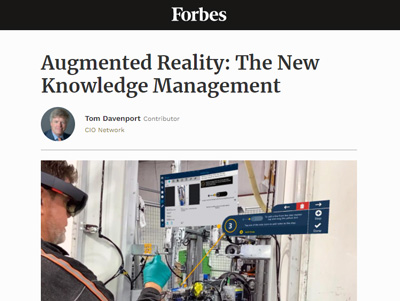Advanced Manufacturing: Factory of the Future
The factory of the future is now. At PBC Linear, the evolution of manufacturing has brought a mix of sophisticated digital technology, smart automation tools, and an upscaled workforce to the factory floor. This pursuit of a higher level of manufacturing has led us to develop our Factory of the Future Program, which aims to seek out new advancements and build industry relationships that will generate higher productivity, more thorough training and staff fulfillment, and an exceptional safety record. This article is part of a longer series that details how PBC Linear is incorporating advancements into its training and production systems. The following content provides background on an important relationship we have established with Taqtile, and how their innovative platform is helping us utilize augmented reality to increase our workforce potential, and ultimately benefit our business and customers.
Training: Then and Now
As recently as ten years ago, PBC Linear enjoyed a full lineup of employees that had accumulated twenty or even thirty years each of machining and manufacturing experience. This breadth of experience allowed us to bring in new hires and match them with an experienced mentor for training. Typically, the training on a machine would require four to six weeks to reach an acceptable proficiency. As this experienced workforce has retired and potential young recruits have chosen other career paths, a shortage of seasoned employees has ensued, making our training process much more difficult.
 Manifest software from Taqtile has begun to solve two prongs of the machinist talent drain. The first is its ability to use a gaming type platform that many young recruits can relate to. They are not versed in the pen and notebook, but rather the digital world at their fingertips. This not only makes their training methods more engaging, but also more attractive as a career.
Manifest software from Taqtile has begun to solve two prongs of the machinist talent drain. The first is its ability to use a gaming type platform that many young recruits can relate to. They are not versed in the pen and notebook, but rather the digital world at their fingertips. This not only makes their training methods more engaging, but also more attractive as a career.
The second remedy is the ability to extract on-the-job knowledge from experienced operators, and then create a program that can be indefinitely reused or tweaked for maximum effect. As Tim Lecrone, Director of Manufacturing Engineering explains, “After being introduced to Taqtile we were able to grasp the concept that we could take this tribal knowledge, make an instruction on it, and duplicate it when needed.” These complicated processes are broken down into simple tasks, allowing the new hire to observe focused and specific instructions in a document at their pace. This helps the student avoid a potential botched translation from the mentor, or know that they can always revisit the program if they forget a particular step in the sequence.
The Cost of Training
There is a substantial trickle-down effect with regards to not having a properly trained workforce. As a part travels through several different sequential operations within the shop floor, the cost to make that part increases, and subsequently so does the value. For instance, if we have a newer operator running a machine where that part is at its last operation before completion, a mistake can lead to a failure of that part and be rather costly. In essence, a $200 part can become scrap. If we have fifty or sixty parts that end up being scrapped within one shift, the losses on a $200 part can rise dramatically.
Compare that to having a software tool like Manifest from Taqtile. Here, the operator can access the software to first look at a photo of the part, and then do a quick inspection to make sure the machine is operating correctly. The new employee’s learning process is relatively autonomous, freeing up time the would have been co-opted from an experienced worker.
The COVID Effect
After a full year of dealing with a punishing pandemic, manufacturers have learned many valuable lessons. Much in the same way that technology has aided office workers with stay-at-home options, Taqtile has become integral in continuing employees’ training regiments while adhering to strict social distancing protocols. Employers have realized that new tools like Taqtile’s Manifest software can help employees learn and incorporate other new technologies like collaborative robots, which have also become more ubiquitous as a result of COVID. As the factory of the future comes into fuller view, small to mid-sized companies are finding the tools to create a flexible, safe, and engaging work environment while honing their competitive edge across markets. In fact, there is much evidence to support the conclusion that these new technologies are combining to create a renaissance in manufacturing that will inevitably lead to the reshoring of factories here in the United States.
PBC Linear is continuing to explore how we can continue to attract and retain employees. By using Manifest training solutions, we will have the capabilities to both train them very quickly and make their work more engaging. Most importantly, we can continue to get our parts to customers on time. As Tim Lecrone states, “I am really excited about where this tool will take us!”
See other related information that showcases how PBC Linear is advancing manufacturing:


